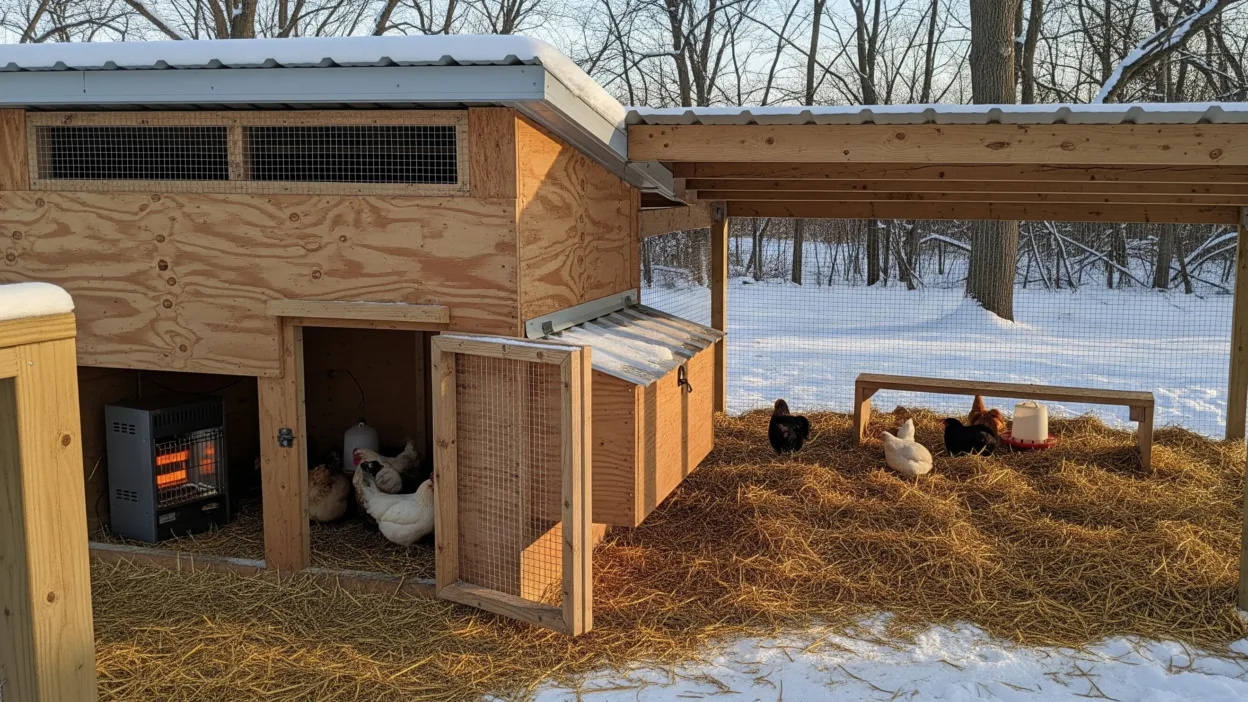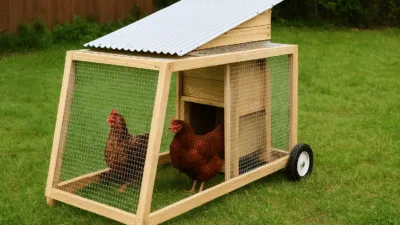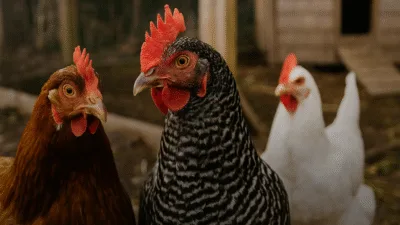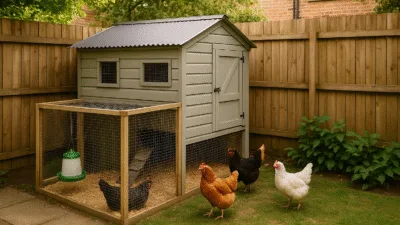Raising chickens in winter requires a thoughtful approach to keep your flock safe, healthy, and productive. While chickens are naturally cold-hardy animals, they still need support to get through freezing temperatures, icy winds, and short daylight hours. With the right techniques, you can keep backyard chickens warm in winter without the risks of heat lamps or expensive heating systems.
Why Chickens Can Tolerate Cold
Chickens regulate their body heat by fluffing up their feathers to trap warm air. Cold-hardy breeds like Orpingtons, Wyandottes, and Brahmas have dense feathers and small combs, helping them resist frostbite and low temperatures. With proper care and a draft-free coop, most chickens will do just fine in sub-zero conditions.
1. Choose Cold‑Hardy Chicken Breeds
Start by selecting breeds known for winter resilience. Look for birds with:
- Thick feathering
- Small combs (rose, pea, or cushion types)
- Calm temperaments that suit confinement
Recommended cold-hardy breeds:
- Wyandotte
- Orpington
- Australorp
- Brahma
- Plymouth Rock
- Chantecler
2. Winterize Your Chicken Coop
A secure and insulated coop is your flock’s first line of defense.
Steps to prepare your coop:
- Seal cracks and gaps to prevent cold drafts
- Add insulation using foam boards, straw bales, or reflective panels
- Elevate the coop slightly to prevent water or snow buildup
- Slope the roof so snow slides off instead of piling up
3. Use the Deep Litter Method
The deep litter method helps chickens stay warm by building natural insulation.
How it works:
- Begin with a thick base of pine shavings or straw
- Add fresh bedding on top regularly
- Allow the lower layers to compost slowly
- The breakdown process generates gentle warmth
4. Maintain Proper Ventilation
Cold is not as dangerous as moisture buildup inside the coop.
To prevent humidity and frostbite:
- Install vents near the top of the coop to let moist air rise and escape
- Avoid placing vents near the birds’ roosting level
- Keep ventilation openings covered with hardware cloth to block wind and predators
5. Provide Heated or Unfreezable Water
Chickens need access to water at all times, even in freezing weather.
Tips for winter water management:
- Use a heated waterer or base
- Swap water bowls twice daily if not using electric solutions
- Avoid metal containers, which can stick to combs or wattles in freezing temps
6. Boost Their Diet for Cold Weather
Chickens burn more energy in winter. Add high protein and high energy treats to support body heat.
Great winter treats:
- Black oil sunflower seeds
- Cracked corn in the evening
- Oats or warm mash
- Dried mealworms
- Scrambled eggs or kitchen scraps (no salty or spoiled food)
7. Skip the Heat Lamps
Heat lamps are a fire hazard and usually unnecessary. Chickens are well-equipped for the cold if they are:
- In a dry, draft-free coop
- Well-fed with access to clean water
- Given proper roosting space
If needed, use low-voltage heated pads under waterers or rely on the deep litter method instead.
8. Set Up Safe Roosting Areas
Roosts help chickens retain body heat during sleep.
Roosting tips:
- Use flat wooden bars at least 2–4 inches wide
- Position roosts higher than nesting boxes to encourage proper use
- Keep roosts away from drafty windows or vents
- Avoid metal roosts which get too cold
9. Create Winter-Friendly Run Space
Letting your chickens stretch their legs is important even in snow.
Ideas to keep them active:
- Shovel snow from a small area in the run
- Cover the run with tarps or plastic sheeting to block snow and wind
- Hang cabbage or scatter scratch to encourage movement
- Provide boredom busters like logs or straw piles
10. Watch for Signs of Cold Stress
Daily checkups are key in extreme weather.
Red flags include:
- Lethargy or unwillingness to eat
- Pale or blackened combs or wattles
- Huddling in corners or unusual behavior
Use petroleum jelly to protect combs and wattles from frostbite. Bring severely stressed birds indoors if necessary.
Final Thoughts
Keeping backyard chickens warm in winter doesn’t require fancy gadgets or costly solutions. With the right preparationlong and choosing cold-hardy breeds, insulating your coop, using the deep litter method, and offering high-energy treats you can help your chickens thrive in even the coldest conditions.
Stay consistent, observe your flock daily, and enjoy fresh eggs all winter long.



